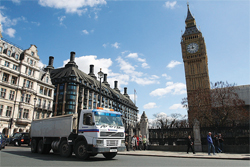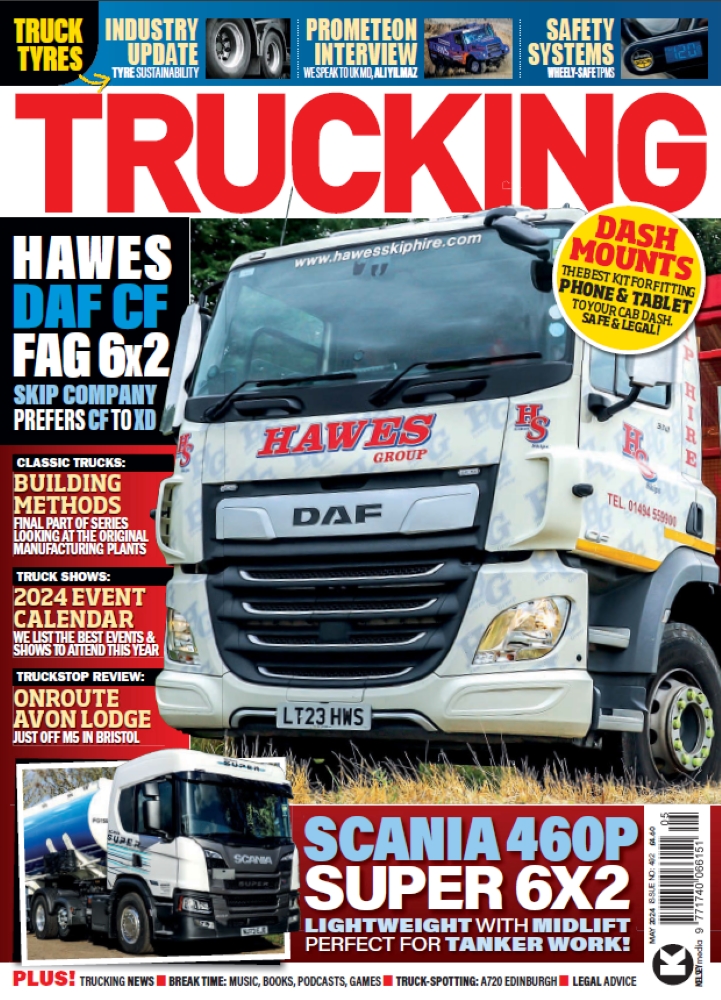
The government has announced a new series of measures impacting HGV use in London as part of its ongoing mission to improve the safety of cyclists in the capital.
On September 4, transport minister Stephen Hammond, London mayor Boris Johnson and London’s transport commissioner Sir Peter Hendy said a new industrial task force is being set up by the Department for Transport and
Transport for London to take direct action against what they termed “dangerous HGV drivers, vehicles and operators”.
The government said DfT and TfL will devote more VOSA and Metropolitan police officers to the enforcement of HGV standards in the city, and the task force will raise awareness of safety requirements for vehicles and drivers and to take action against dangerous hauliers, vehicles and drivers found operating within London.
Under national legislation, most HGVs are required to be fitted with safety equipment such as sidebars or low skirts which protect cyclists and other vulnerable road users from being dragged underneath the vehicle in the event of a collision.
However, some vehicle types – particularly construction trucks – are exempt. According to the government, the rising number of such vehicles in London’s ‘building boom’ present a risk to the growing number of cyclists who, it said, make up almost a quarter of all rush hour traffic in the centre.
TfL and Crossrail procurement conditions already require exempt vehicles to be fitted with such safety equipment, and transport minister Stephen Hammond said the DfT will review exemptions to current vehicle regulations which mean some construction and waste-carrying trucks do not have to be fitted with side guards. It will also review the enforcement of regs applying to specialised mobile equipment such as volumetric concrete mixers and mobile cranes.
“The government is committed to improving the safety of cyclists and other vulnerable road users,” Hammond said. “Today’s announcement of a dedicated Industrial HGV task force will target the small minority of large goods vehicle operators who are unaware of, or just willfully non-compliant with, safety regulations for HGVs and their drivers.”
However, the statement was met with surprise in some sectors. The Freight Transport Association (FTA) argued HGV operators are already doing a lot to improve safety by installing additional equipment, training drivers and making changes to the way they operate.
It added there has also been huge investment made by the industry to ensure vehicles are fitted with basic safety equipment, with many going above and beyond the legal requirements.
“FTA views the decision as unprecedented and authoritarian and considers it to be one that will create a mess of confused standards, leaving HGV operators not knowing what they are trying to achieve,” said FTA director of policy, Karen Dee.






